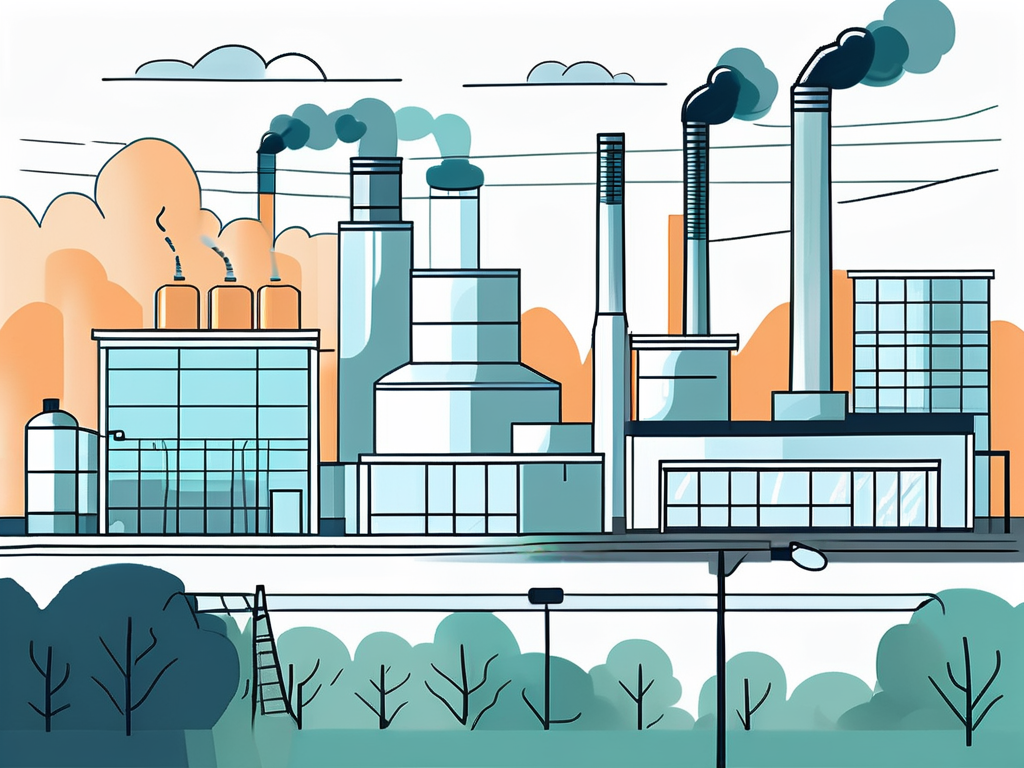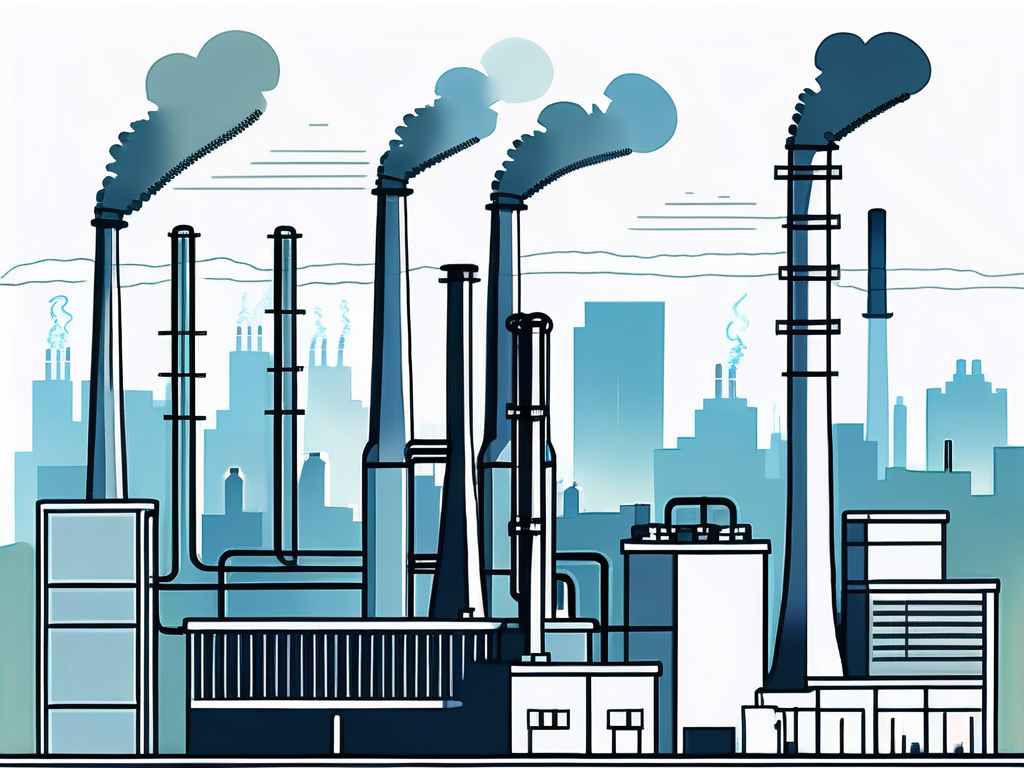In today’s world, where pollution levels are on the rise, the need to improve air quality has become more critical than ever. Ensuring that the air we breathe is clean and healthy is of utmost importance for both our well-being and the environment. This is where professional air quality services play a significant role. With their expertise and specialized tools, these services can help us achieve improved air quality in our homes, workplaces, and communities. In this article, we will explore the importance of air quality, the role of professional services in its improvement, and how to select the right service provider to meet our specific needs.
Understanding the Importance of Air Quality
Air quality refers to the state of the air surrounding us, including the presence of pollutants and the overall purity of the atmosphere. Poor air quality can have severe implications for our health and the environment.
When we talk about air quality, we often focus on outdoor air, but it’s crucial to consider indoor air quality as well. Indoor air pollution can be caused by factors such as inadequate ventilation, household cleaning products, and even certain types of furniture emitting harmful chemicals. Ensuring good indoor air quality is essential for maintaining a healthy living environment, especially since we spend a significant amount of time indoors.
Health Implications of Poor Air Quality
The impact of polluted air on our health cannot be overstated. Breathing in contaminated air can lead to various respiratory problems such as asthma, allergies, and even lung cancer. Additionally, it can worsen existing conditions, like cardiovascular diseases. Children, the elderly, and individuals with compromised immune systems are particularly vulnerable to the adverse effects of poor air quality.
It’s not just physical health that is affected by poor air quality; mental health can also be impacted. Studies have shown a correlation between exposure to air pollution and mental health issues such as anxiety and depression. The link between air quality and overall well-being underscores the importance of addressing air pollution on multiple fronts.
Environmental Impact of Air Pollution
Aside from its effects on human health, air pollution also harms the environment. Industrial emissions, vehicle exhaust fumes, and other sources of pollutants contribute to climate change, smog formation, and damage to ecosystems. By improving air quality, we can minimize these negative impacts and create a better future for ourselves and the planet.
The damage caused by air pollution extends beyond land and sea; it also affects the atmosphere. Pollutants released into the air can lead to the depletion of the ozone layer, which plays a crucial role in protecting life on Earth from harmful ultraviolet radiation. Preserving air quality is not just about the air we breathe; it’s about safeguarding the delicate balance of our entire ecosystem.
The Role of Professional Services in Air Quality Improvement
Professional air quality services possess the knowledge, experience, and resources to help us achieve cleaner and healthier air. They offer a range of services, including air quality testing and monitoring, as well as air purification solutions.
Ensuring good air quality is essential for our overall well-being, especially considering the increasing levels of pollution in our environment. Professional services play a vital role in safeguarding our health by addressing air quality issues through their expertise and specialized tools.
Air Quality Testing and Monitoring
One crucial aspect of improving air quality is understanding the specific pollutants present in a given environment. Professional services employ advanced testing equipment to identify and quantify different contaminants. By conducting thorough air quality assessments, they can pinpoint areas of concern and devise targeted strategies for improvement.
Moreover, these professionals not only focus on outdoor air quality but also provide indoor air quality assessments. Indoor air pollution can be equally harmful, if not more, due to factors like poor ventilation and the presence of indoor pollutants. By conducting comprehensive tests, professionals can help individuals create healthier living and working environments.
Air Purification Solutions
Based on the results of air quality testing, professional services can recommend and implement appropriate air purification solutions. These solutions may involve the use of high-quality air filters, ventilation systems, or even air purifiers equipped with advanced technologies like HEPA (High-Efficiency Particulate Air) filters or UV-C germicidal lamps. By effectively removing pollutants from the air, these solutions significantly enhance indoor air quality.
Furthermore, professional services often provide ongoing maintenance and monitoring to ensure that the air purification systems continue to function optimally. This proactive approach helps in sustaining clean air environments and provides long-term benefits for the health and well-being of individuals and communities.
Selecting the Right Air Quality Service Provider
When it comes to choosing a professional service provider for air quality improvement, several factors should be taken into consideration.

Ensuring the air quality in your home or workplace is crucial for maintaining a healthy environment. Poor air quality can lead to various health issues, including respiratory problems and allergies. Therefore, selecting the right service provider is essential to improve the air you breathe and create a safe space for you and your loved ones.
Key Factors to Consider
Firstly, it is essential to assess the service provider’s expertise and experience in the field of air quality improvement. Look for certifications, accreditations, or affiliations that indicate their commitment to best practices. Additionally, consider the range of services they offer and whether they cater to your specific needs.
Experience matters when it comes to air quality services. A provider with a proven track record of successful projects and satisfied clients is more likely to deliver quality results. Look for companies that have been in the industry for a significant amount of time and have a reputation for excellence in air quality improvement.
Questions to Ask Potential Service Providers
Before making a decision, don’t hesitate to ask potential service providers the right questions. Inquire about their previous projects, success stories, and client testimonials. Seek clarity on their methodology and the specific air quality improvement strategies they employ. Furthermore, discuss the cost and duration of the project, as well as any warranties or guarantees they may provide.
Transparency is key when engaging with air quality service providers. Make sure to ask about their process from start to finish, including any potential disruptions to your daily routine during the improvement process. Understanding the timeline and potential inconveniences can help you better prepare for the project and ensure a smooth experience.
The Process of Air Quality Improvement
The journey towards improved air quality involves a systematic approach, consisting of multiple stages.

Ensuring clean and healthy air is essential for maintaining a sustainable environment and safeguarding public health. The process of air quality improvement requires a multidisciplinary approach, involving experts in environmental science, engineering, and public health. By collaborating with various stakeholders, including government agencies, businesses, and community members, a comprehensive strategy can be developed to address air pollution effectively.
Initial Assessment and Planning
The initial step in improving air quality is to conduct a comprehensive assessment of the environment. This assessment involves the collection of air samples, analysis of pollutants, and identification of potential sources. Based on these findings, a customized plan is developed, outlining the necessary steps to achieve the desired air quality standards.
During the planning stage, factors such as geographical location, industrial activities, traffic patterns, and meteorological conditions are taken into consideration. By understanding the unique characteristics of the air quality challenges in a specific area, tailored solutions can be implemented to mitigate pollution levels effectively. Stakeholder engagement and community participation play a crucial role in shaping the planning process, ensuring that the solutions are practical, sustainable, and socially equitable.
Implementation of Air Quality Solutions
With a well-structured plan in place, professional service providers proceed to implement air quality solutions. This phase may involve the installation of air purification equipment, adjustments to existing ventilation systems, or recommendations for behavioral changes that minimize pollution sources. The objective is to establish a clean air environment that promotes health and well-being for all occupants.
Furthermore, ongoing monitoring and evaluation are essential components of the implementation phase to track progress, identify emerging issues, and make necessary adjustments to the air quality improvement strategy. Continuous collaboration between experts, policymakers, and the community is vital to ensure the long-term success of air quality initiatives and to create a culture of environmental stewardship.
Maintaining Improved Air Quality
Improving air quality is an ongoing process that requires consistent monitoring and periodic adjustments.

Regular Monitoring and Adjustments
Once air quality solutions are implemented, regular monitoring is crucial to ensure sustained improvement. Service providers may schedule follow-up visits to analyze air samples and assess the effectiveness of the implemented measures. Based on these findings, adjustments can be made to optimize the air quality further.
Long-Term Strategies for Clean Air
Service providers may also offer guidance on long-term strategies to maintain clean air, such as routine maintenance of air purification systems, adopting eco-friendly practices, and staying updated with any emerging air quality concerns or regulations. By following these strategies, we can enjoy improved air quality and contribute to a healthier and greener environment.
In conclusion, professional air quality services are instrumental in improving the air we breathe. By understanding the importance of air quality, recognizing the role of professional services, and selecting the right service provider, we can embark on a journey towards cleaner and healthier air. Through proper assessment, implementation, and maintenance, we can make a significant difference in our immediate surroundings and contribute to a better future for ourselves and the planet.




